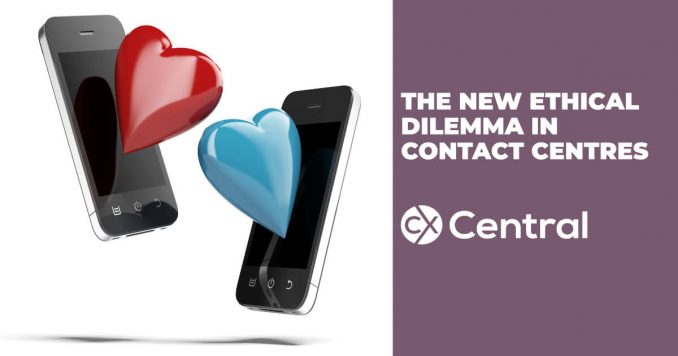
Is matching customers to call centre agents a new ethical dilemma?
New technology is matching customers to call centre agents based on personalities to improve the CX and deliver better sales conversions.
Spare a thought for the contact centre manager: their job has changed almost beyond recognition in the last few years as the call centre has morphed into the contact centre, as uni-channel has become first multichannel and now omnichannel.
Long gone are the days when the primary concerns were ensuring the effectiveness of the IVR system, training contact centre operators and making sure they had the right systems to answer customer queries.
Matching customers to an agents personality
Now, on top of all the other issues call centre managers have to juggle to ensure the optimal customer experience comes a new task: matching callers to operators with personalities likely to keep the customer happy.
Mattersight, a US company providing technology to do just that, has published the result of a survey to support the need for this ‘matchmaking’.
The report argues: “Personality plays a leading role in everything we do – throughout our personal and professional lives.
Individuals naturally work and communicate better with certain people based on similar or dissimilar-yet-complementary styles and personalities.
The same is true when it comes to call centre connections.”
So who do customers want to be matched to?
And it has the survey results to back this up: “Consumers surveyed who self-identified their personality type as ‘logical & specific or dedicated & conscientious’ prefer to talk to a representative with the same respective personality type.
Those who self-identified as ‘fun & playful’ prefer to talk to a ‘warm & caring’ representative, and ‘warm & caring’ people prefer to talk to someone whos ‘dedicated & conscientious’.”
Interestingly, “while the majority of consumers surveyed consider themselves to be warm & caring, that’s not the kind of person they want picking up the phone when they call customer service.
When asked which personality they’d prefer, two styles prevailed for 70 per cent of consumers surveyed: 50 per cent said they prefer to speak with someone dedicated & conscientious, and the other half said logical & specific.”
What about those millennials?
What also emerged from the study is that millennials a generation that will become increasingly important differed markedly from every other age group in their preferred contact centre agent personality. (This year millennials are expected to surpass baby boomers as the largest age group in the US, according to population projections released by the U.S.A Census Bureau).
Millennials are “more likely to use self-service options to solve problems before calling for help,” with the result that “When millennials do call, it’’s likely they’ve exhausted all other problem-solving options and are at the end of their ropes.”
And when that happens: “Unlike the rest of the survey population, more millennials would prefer to speak with warm & caring customer service reps, while far fewer would do well with someone dedicated & conscientious.”
That’s all very well, but it’s no good an operator leaving a customer with a warm fuzzy feeling if that operator is not conscientious enough to make sure the customer gets the right answer.
Recommended further reading: 9 Predictions of the customer service future
Find a full list of all the technology suppliers servicing Australia in the free CX Directory >>>>

Be the first to comment